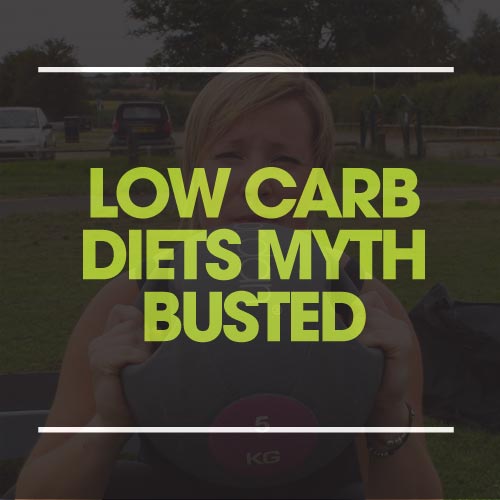Low carb diet myths busted

A lot of people have tried one of the many variations of this type of diet or at very least know someone that has.
So what are the facts? How do they create such a fast reduction of your weight on the scales?
What physiological effect does this type of diet have on your body and is there a better alternative?
All of these questions are answered along with plenty more so keep reading on to discover the facts and the fiction surrounding low carb diets.
The human bodies number one energy source is carbohydrates (see section what is a carbohydrate), this is an undisputed fact that has been true for thousands of years and will be true for thousands more to come.
In basic terms when we eat carbohydrates they get converted by your liver into glycogen which we either use for energy immediately or store in the muscles and your liver.
The reason for storing this glycogen is so that once you have used up the glycogen that is in your blood (this does not take long) you can then fuel yourself on your muscle glycogen stores until such a time comes that you can eat some more carbohydrates to replenish the glycogen you have just utilised for energy.
As the human body contains lots of muscles and has a relatively sizeable liver it would not be unusual for the average person to store around 6lb of glycogen in their liver and a further 20-25lb in their muscles.
By taking carbohydrates out of your daily intake of food you will quite quickly (a matter of hours) begin to fuel yourself on your stored glycogen.
Our brain can quite comfortably chomp its way through around 300g of carbohydrates in 24 hours so every time you move to drive your car, speak to someone, do your job, exercise or even breath in and out you are consuming even more carbohydrates/glycogen, if these are not present in your diet you will take them from stored glycogen.
This process will cause quite rapid weight loss on the scales as your body contains a fairly large amount of glycogen and also uses quite a lot of it quite quickly.
If you were a very active person, for example if you were a brick layer that also likes training in the gym every night after work it would be very possible to reduce your overall body weight by as much as 3-4lb per day.
Unfortunately and crucially none of this weight on the scales would of came from body fat at that stage but would of came directly from your glycogen stores instead.
Effectively you have stripped away your lean tissues which are the bits you want to keep and held on to your stored fat which is the bit you want to lose. So as much as you may have obtained the illusion of a good result on the scales the facts are that you would be in a worse physiological position than when you began.
Once your glycogen stores are quite depleted you will begin to feel weak, light headed, irritable, tired and generally quite unwell, this is quite simply your body and brain being starved of its fundamental source of energy.
Essentially your fuels tanks are running low. Some diets will advocate that once your glycogen fuel tanks are empty your body can start lypolisysing fat, this has an element of truth as your bodies second source of energy in a situation of mal-nourishment is protein/stored protein (muscles, organs skin etc) and once they are at a critical level you will indeed start to utilise your last and final, reserve, emergency source of energy for fuel which is stored body fat (adipose tissue, see section what is fat).
Once you reach this point you will of depleted your lean masses quite critically and almost beyond recovery to their original state and strength.
Other lesser known side effects can be a slight increase in blood acidity resulting in an increased level of ammonia in the blood which could lead to gang green of the extremities due to acidic blood pooling.
Over production of bile from the liver potentially resulting in gall stones, gall bladder removal or even acute pancreatitis.
Fortunately there is a much more effective way to ensure that you are only losing body fat whilst keeping hold of all of your lean tissues, to find out how to do this please give Train Learn Go a call on 01785 318709
Olympic athletes can eat 1500g+ of carbohydrates per day and maintain 5% body fat.
